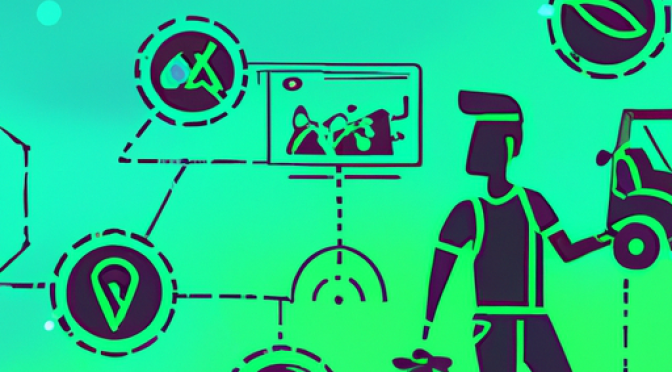Introduction
Artificial Intelligence (AI) is revolutionizing various industries, and the agricultural sector is no exception. With the advent of AI technologies, direct farmer-to-consumer interactions and sales have become more efficient and streamlined. This article explores the ways in which AI is facilitating these interactions and transforming the agricultural landscape.
Enhanced Customer Engagement
AI-powered chatbots and virtual assistants are enabling farmers to directly engage with consumers in real-time. These intelligent systems can answer queries, provide personalized recommendations, and offer assistance throughout the purchasing process. By leveraging natural language processing and machine learning algorithms, AI enables farmers to establish a direct and meaningful connection with their customers.
Smart Inventory Management
AI algorithms can analyze historical sales data, market trends, and weather patterns to predict consumer demand and optimize inventory management. By accurately forecasting demand, farmers can ensure they have the right products available at the right time, reducing waste and maximizing sales. AI also enables automated inventory tracking, ensuring farmers can efficiently manage their stock levels and avoid stockouts.
Precision Agriculture
AI-powered drones and sensors are revolutionizing farming practices by providing real-time data on crop health, soil conditions, and irrigation needs. By collecting and analyzing this data, farmers can make informed decisions regarding crop management, leading to increased productivity and reduced costs. AI algorithms can also provide personalized recommendations for fertilizers, pesticides, and other inputs, tailored to the specific needs of each farm.
Streamlined Supply Chain
AI technologies are optimizing the supply chain by automating various processes, such as logistics, transportation, and quality control. AI-powered systems can track and monitor the movement of agricultural products, ensuring timely delivery and minimizing wastage. By streamlining the supply chain, AI facilitates direct farmer-to-consumer sales by reducing intermediaries and enabling farmers to reach consumers more efficiently.
Data-driven Decision Making
AI enables farmers to make data-driven decisions by analyzing vast amounts of agricultural data. By leveraging machine learning algorithms, farmers can gain insights into market trends, consumer preferences, and production patterns. This information empowers farmers to adapt their strategies, optimize their operations, and tailor their products to meet consumer demands effectively.
Conclusion
AI is transforming the agricultural industry by facilitating direct farmer-to-consumer interactions and sales. Through enhanced customer engagement, smart inventory management, precision agriculture, streamlined supply chains, and data-driven decision making, AI technologies are revolutionizing the way farmers connect with consumers. As AI continues to advance, the agricultural sector can expect further improvements in efficiency, productivity, and sustainability.

